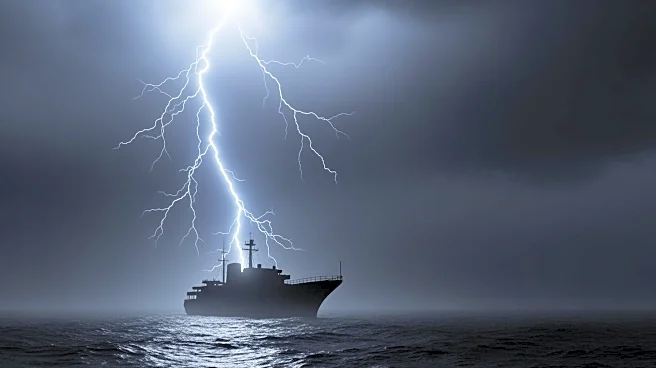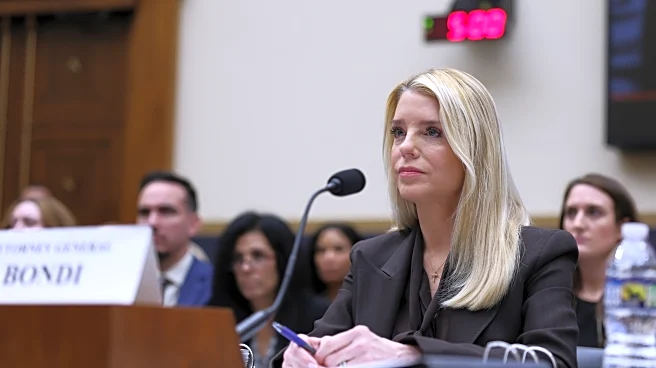What's Happening?
The United States military has executed another strike on a vessel in the Caribbean Sea, resulting in the deaths of three individuals identified as 'narco-terrorists.' This operation was ordered by President
Trump and announced by Secretary of Defense Pete Hegseth. The targeted vessel was reportedly involved in narcotics smuggling, according to U.S. intelligence. This strike is part of a broader campaign initiated in early September, which has led to the deaths of over 62 individuals and the destruction of multiple vessels. The campaign has faced criticism for potentially violating international law, as it involves lethal force against noncombatants outside a recognized conflict zone. The United Nations High Commissioner for Human Rights, Volker Turk, has condemned the attacks, urging the U.S. to cease such operations.
Why It's Important?
This military action underscores the Trump administration's aggressive stance on combating drug trafficking in the Caribbean, a region with significant geopolitical tensions. The strikes have heightened diplomatic strains with Venezuela and Colombia, with Venezuelan President Nicolas Maduro denouncing the actions as illegal and an act of aggression. The U.S. has also increased its military presence in the region, deploying advanced military assets, which has drawn criticism from Russia. The operations raise questions about the legality and ethical implications of using military force in international waters, potentially setting a precedent for future U.S. military engagements.
What's Next?
The U.S. military buildup in the Caribbean is expected to continue, with the Ford carrier strike group anticipated to arrive in the region soon. This escalation may provoke further diplomatic responses from affected countries and international bodies. Venezuela and its allies, including Russia, are likely to continue opposing U.S. actions, potentially leading to increased geopolitical tensions. The Trump administration's approach may also face scrutiny from human rights organizations and international law experts, who may call for accountability and adherence to international legal standards.
Beyond the Headlines
The ongoing military operations in the Caribbean could have long-term implications for U.S. foreign policy and its relationships with Latin American countries. The use of military force in drug interdiction efforts raises ethical and legal questions about sovereignty and the appropriate use of force. Additionally, the operations may influence U.S. domestic policy discussions on drug trafficking and border security, potentially impacting future legislative and executive actions.










